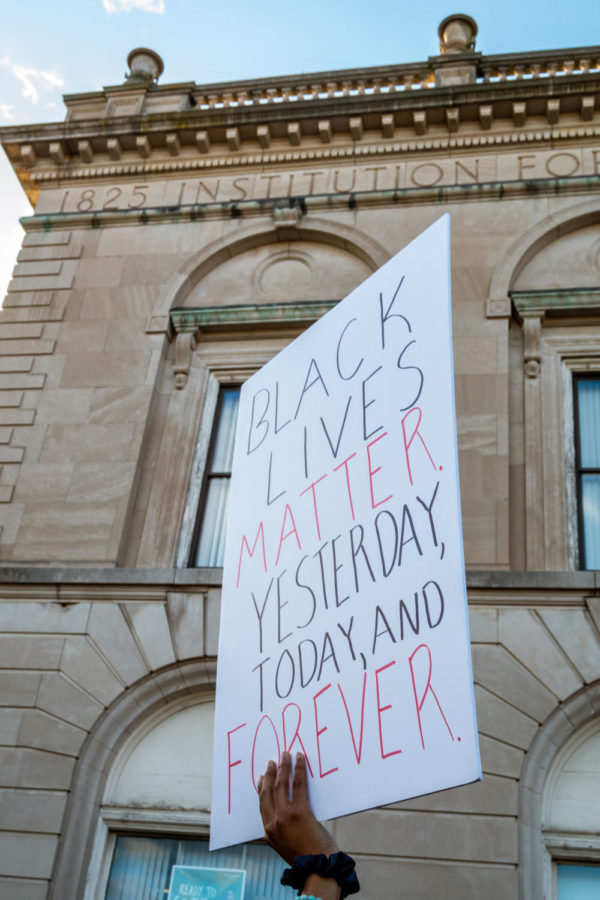A year since the death of George Floyd
Since the death of George Floyd, efforts are being made by local groups, including Ames Black Lives Matter and the ISU Black Student Alliance, to advocate for radical change in the fight against racism and police brutality.
May 30, 2021
On March 25, 2020, then-Minneapolis Police Officer Derek Chauvin knelt on George Floyd’s neck for nine minutes and 29 seconds, killing him. On April 23, Chauvin was convicted of second-degree unintentional murder, third-degree murder and second-degree manslaughter.
Tuesday marked the one-year remembrance of Floyd’s murder. In that year, the world has seen social justice, equality and police brutality thrusted into the spotlight. Massive protests were seen worldwide over injustice calling for equality.
In the United States, these protests, which were mostly peaceful, were met with forceful police and National Guard responses, many instances resulting in police arresting journalists and violating human rights.
Iowa saw a wave of protests across the state during the year, with the largest occurring in downtown Des Moines. Ames saw a gathering of around 300 protesters at Ames City Hall at the end of May.
In response to the public outrage, many states across the country implemented bans or revised policy changes on chokeholds, teargas and body cameras. Iowa saw a reform bill on chokeholds, but there were few changes elsewhere.
The Iowa Legislature has been criticized by some for bills that seem counterintuitive for the progress of social equality, such as bills that target protesters and seek to limit discussion of critical race theory.
With the goal of social justice and equality, Ames has seen groups form in order to help achieve the goal, especially with a focus on critical race theory and equity in the classrooms.
The Anti-Racism Collaboration of Ames, described on their website as “a multi-racial collective of anti-oppression educators and activists committed to supporting the movement for racial justice and equity,” provides education, workshops and social movements to bring change.
The Ames Black Lives Matter movement was also vocal during the year, advocating for a stronger, more inclusive school curriculum during Black Lives Matter Week. The movement also promoted equality and justice through supporting proposed legislation on the state level, such as restoring the voting rights of Iowan felons who have been released.
In March, Ames Superintendent Jenny Risner defended curriculum ideas promoted for the school’s Black Lives Matter Week to the Iowa House Government Oversight Committee after they had received backlash from parents and teachers about the subject matter.
On Friday, it was announced that Risner announced her planned resignation next month. She will finish out her contact until the end of the fiscal year at the end of June.

















